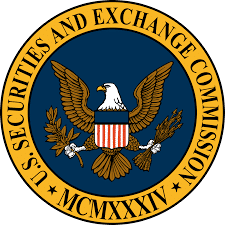In a significant move, the U.S. Securities and Exchange Commission (SEC) is poised to implement new reporting rules that could have wide-reaching implications for the investment landscape, particularly for Bitcoin and Ethereum exchange-traded funds (ETFs).
The changes, expected to be approved soon, are designed to enhance market transparency and provide investors with more timely information. However, they also raise questions about how these new regulations might affect the rapidly growing crypto ETF sector.
SEC Introduces Stricter Reporting Requirements for ETFs and Mutual Funds
The SEC is set to require ETFs and mutual funds to report their portfolio holdings monthly, a shift from the current quarterly reporting standard. According to reports, these changes are expected to be formalized during an upcoming SEC meeting. Under the new rules, funds must file their reports with regulators within 30 days of the month’s end, with public access to the data available another 30 days later. This change, slated to take effect by November 2025, is seen as a move to improve market transparency and investor decision-making.

Initially, the SEC’s proposal included broader regulations, such as “swing pricing” aimed at mitigating market risks. However, these were scaled back due to industry resistance. Instead, the focus has shifted to refining existing rules around liquidity risk management in “open-end” funds, ensuring that traders can redeem shares daily. The updated regulations will also clarify asset liquidity classifications, which are crucial for compliance and protecting investor interests.
What Does This Mean for Bitcoin and Ethereum ETFs?
The new reporting standards could significantly impact Bitcoin and Ethereum ETF issuers, who will now be required to adhere to the same monthly reporting guidelines as traditional funds. This increased transparency could benefit investors by providing more up-to-date information on crypto holdings and market trends, potentially boosting confidence in these digital assets.
However, the SEC’s recent actions, including a Wells notice to OpenSea over the classification of NFTs as securities, have fueled concerns about the agency’s stance on digital assets. Critics argue that the SEC’s regulatory approach could be an overreach, particularly in the crypto space. The timing of these actions, especially following the launch of Donald Trump’s latest NFT collection, has further intensified debates about the SEC’s motivations and the potential political implications.













Discussion about this post